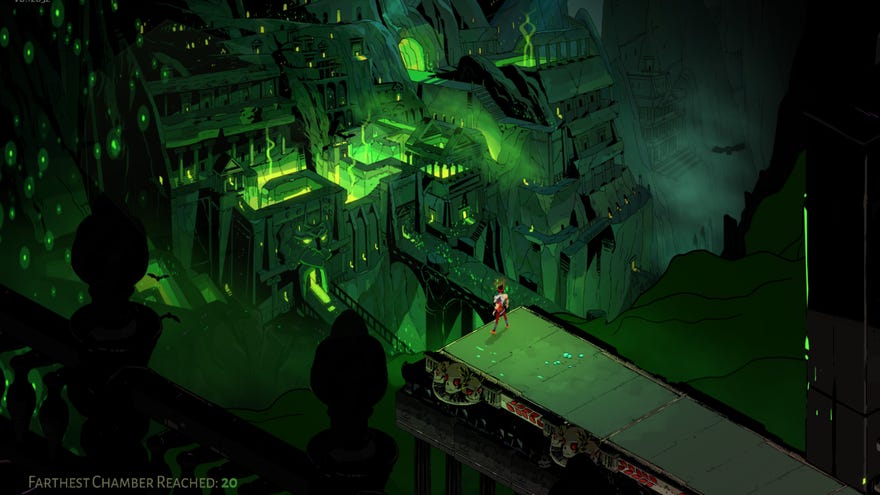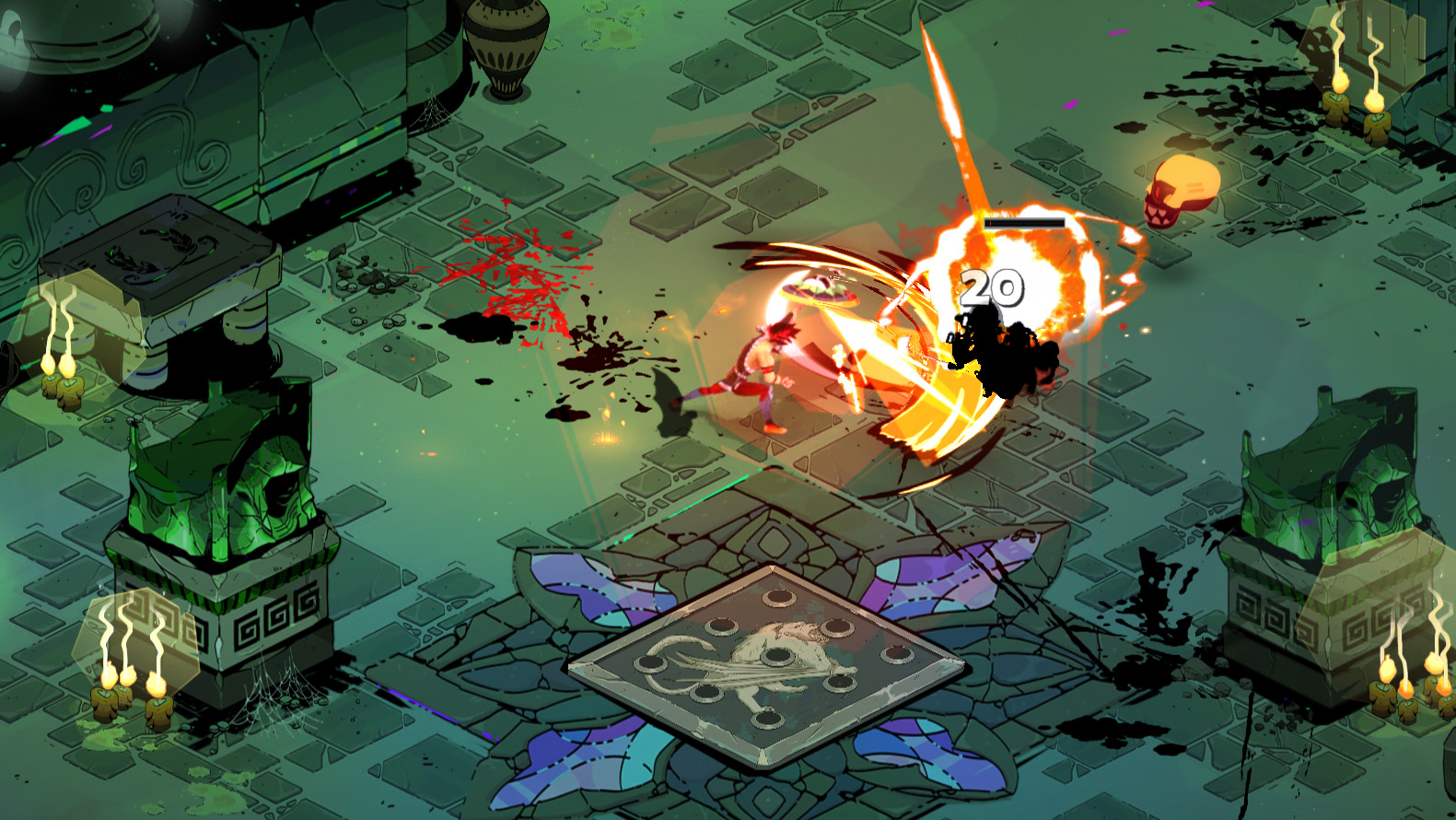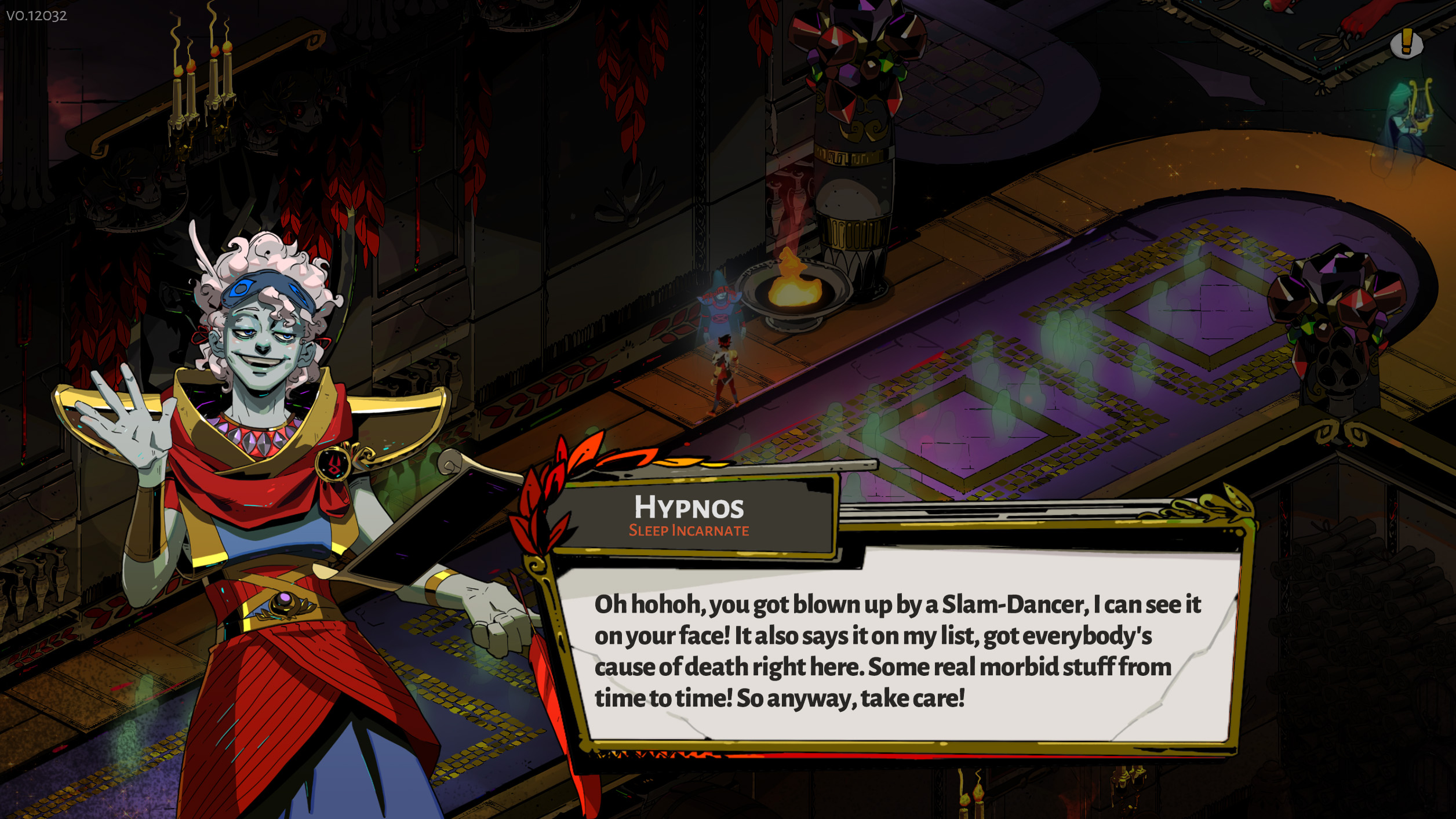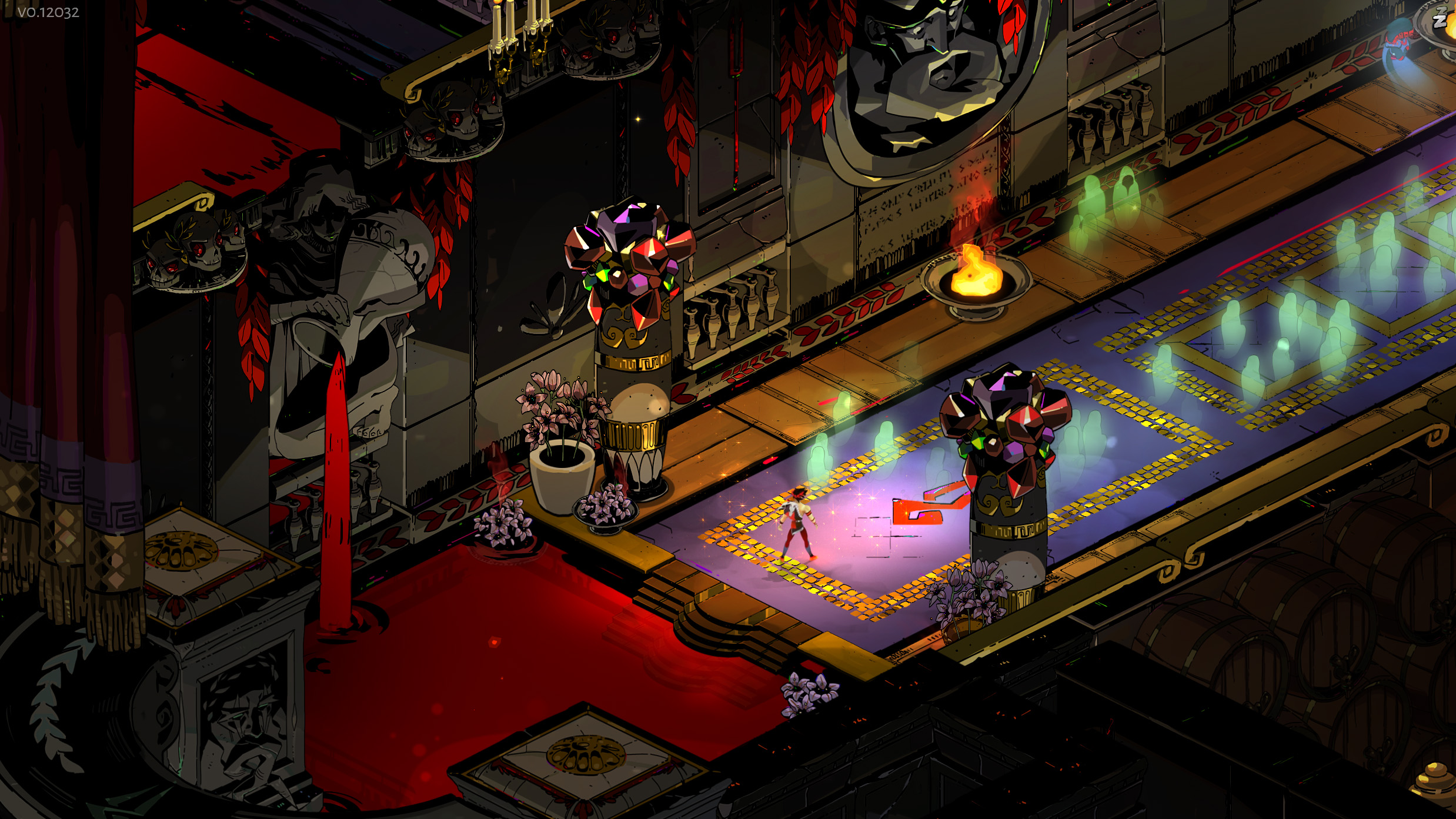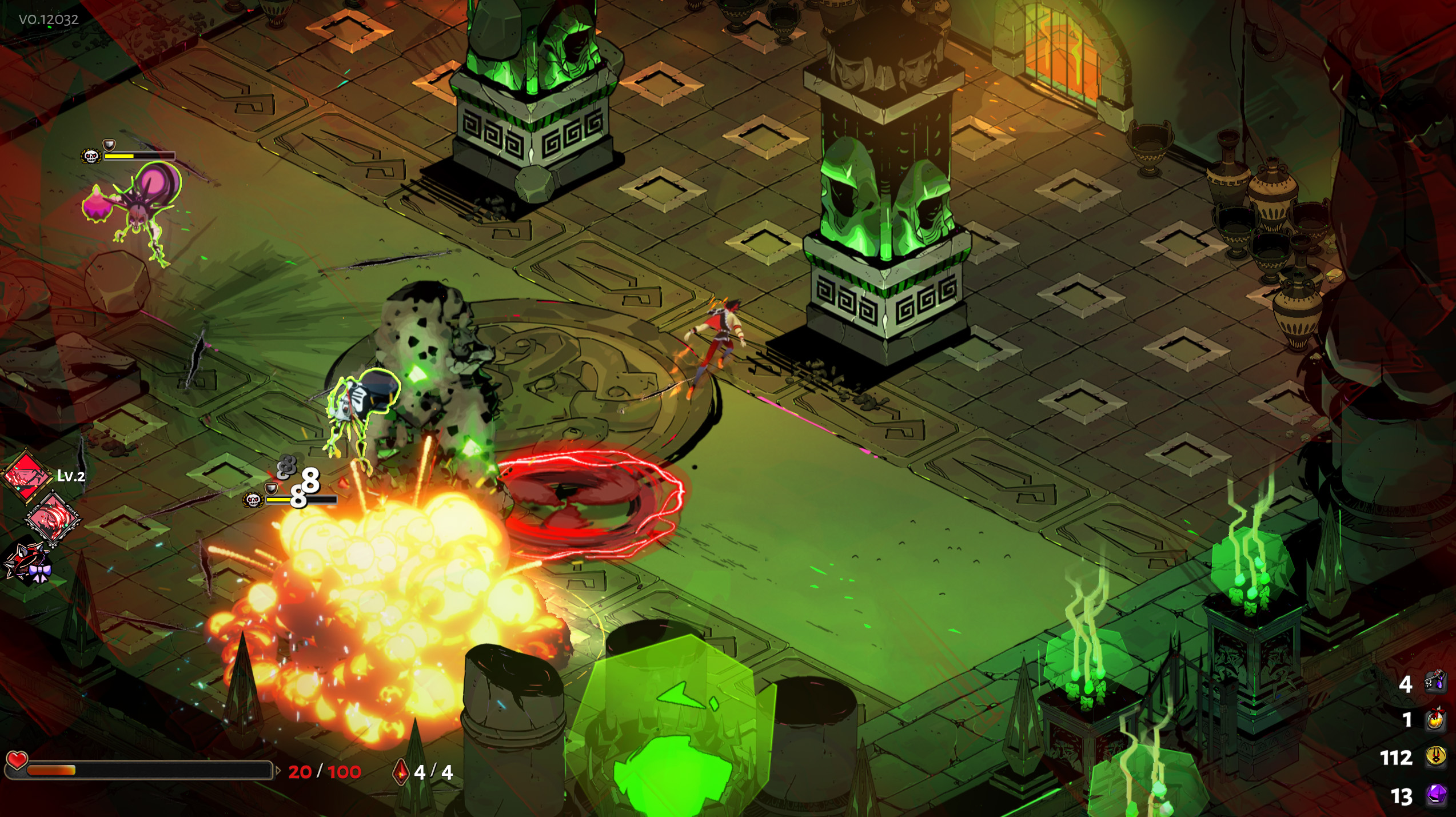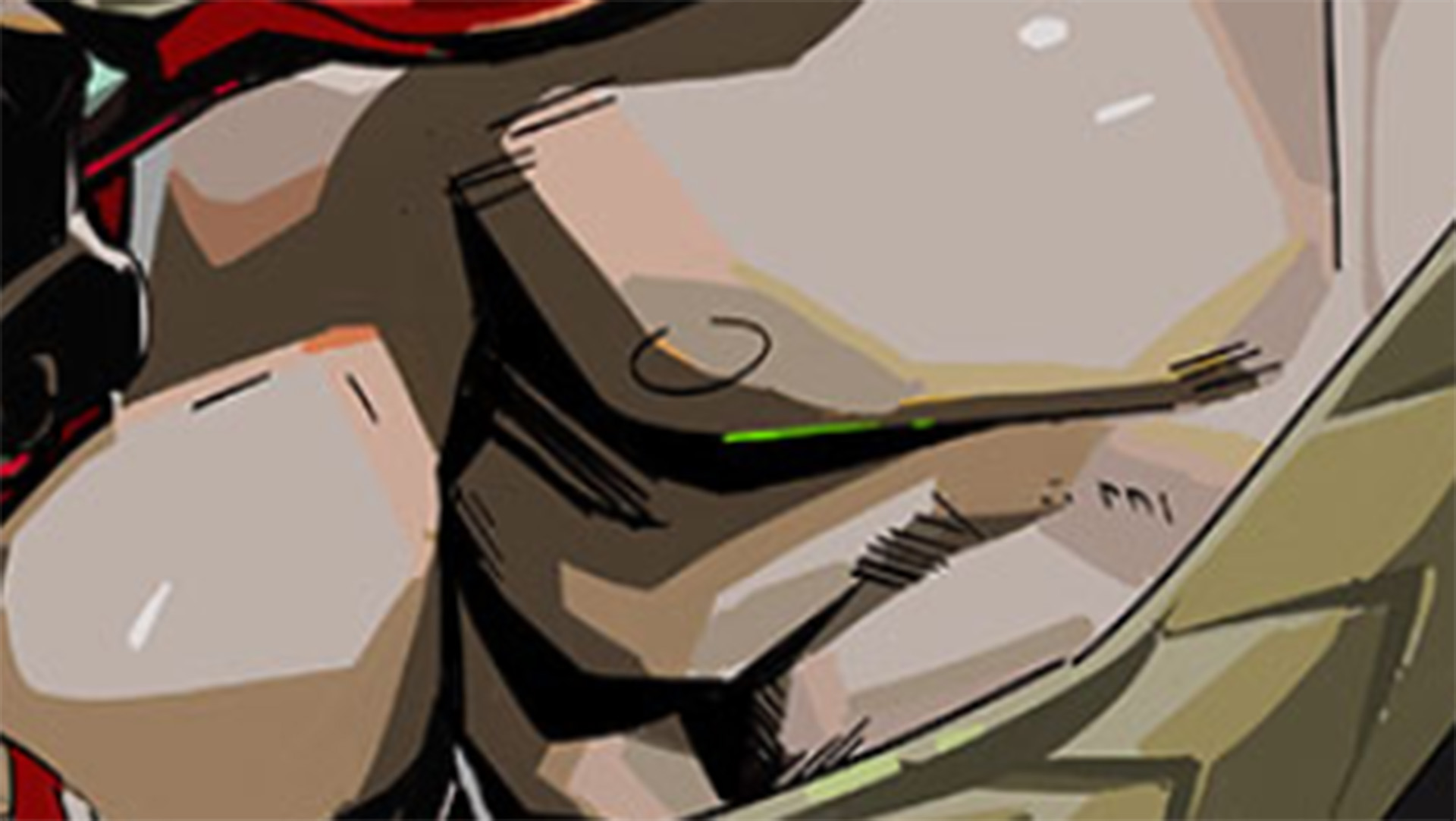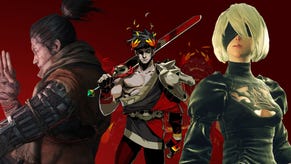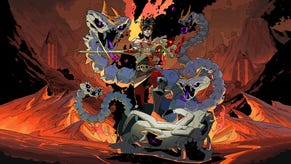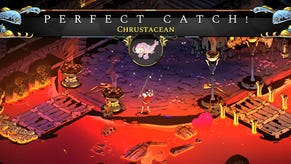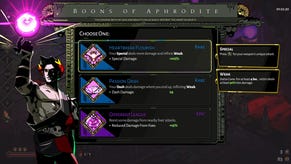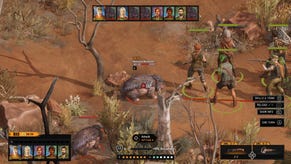Premature Evaluation: Hades
Free the nipple
Large portions of my personality owe a great debt to Greek invention, from ABBA musicals and feta cheese to anal sex and fiscal irresponsibility. But for the past few thousand years the country’s chief cultural export has been its dramatic and complex mythology. A cross between Aesop’s Fables and Hollyoaks, Greek myth forms the basis of every story ever told. Scarface, King Lear, that episode of Hey Duggee where they find a dead body in the woods, all of them are essentially rehashes of the time Zeus and his pals got up to some mischief around the pantheon.
And it’s in this rich old fantasy world that Hades is set. An isometric roguelike from Supergiant Games, developer of Bastion and Transistor, it has you slip into the immortal sandals of Zagreus, son of Hades himself, on a doomed mission to escape the underworld.
The realm of the damned is patrolled by angry spirits, occupying rooms that spontaneously rearrange themselves every time you die, which is every few minutes or so. With each defeat Zagreus emerges from a fountain of blood back at his house, usually with a pocketful of underworld currency to be spent on permanent upgrades and weapon unlocks that make the next attempt marginally more successful. Death is progress, and repetition is improvement.
Supergiant have form when it comes to mucking about with genre conventions. In many ways Hades is a dungeon crawler reminiscent of Bastion, especially when it pumps loads of unexpected narrative and dialogue into a tiny space. Reviving back in Hades’ manor, the residents will always have new things to say or slivers of backstory to reveal. Hypnos, who acts as a sort of live-in receptionist for hell, greets you warmly each time you resurrect, and usually with some wry commentary on the specific kind of grisly end you just met. Your old man Hades lounges on a throne, which you must guiltily slink past whenever you’re about to attempt another futile escape, each time enduring his sarcastic put-downs and withering disappointment at your successive failures. Like any normal father, really. Other characters appear intermittently, and hint at a broader story that unfolds at the self-regulating tempo of your repeated deaths and rebirths.
It’s all very well written and acted, though to my ears the protagonist’s British accent is gratingly posh. Zagreus sounds like Ben Whishaw asking to be moved to another seat at a restaurant because the sun is in his eyes. The word “mate”, which Zagreus deploys with all the frequency of a Tory MP desperately trying to sound human, sounds about as welcome in his mouth as a vegan sausage roll at an EDL march. If you ask me, the son of the god of the underworld – the Jesus Christ of hell – should sound like a Bristolian coach driver, or a woman who sells shellfish out of the back of a van. But that’s a matter of personal taste.
One last point about the characters before I move on to what Hades is actually like to play. It’s a very pretty game. Not only are the circles of hell richly drawn, inked and coloured in a bold, comic book style and full of detail, but each denizen of the underworld you meet is beautifully illustrated during dialogue, in a lush art style that’s somewhere between Jet Set Radio and the Necronomicon. As a side note, Zagreus has a single, naked grey nipple on display at all times, which can be distracting whenever it catches your eye. His tit is just there, hanging out, and he knows it. He likes that you can see it. Anyway.
You’ve got three attacks – one basic, one special, one cast – plus a dash. From the outset you’re offered a choice of a sword or a bow, with the two weapons giving rise to two very distinct styles of play. The goal is to clear each room of enemies to receive a reward, before proceeding through one of a number of exits, above which are glyphs revealing the reward contained in the next room. Some of these rewards last for the duration of your current run, like stackable buffs for your various attacks, health boosts and coins to spend in Charon’s stores. Others are permanent, such as the currency required to improve your baseline abilities back at home, or keys to unlock new skills and weapons. Even the most catastrophically unsuccessful run will leave you with something to show for your efforts.
As such, each run has you creating a new build from scratch, Dead Cells style, by selecting your path through the randomised rooms to curate and grow your character. Buffs and weapon enhancements are occasionally granted by your Olympian relatives who, for reasons that reveal themselves as you play, want to aid you in your quest to battle out of hell. You could min-max your special attack, for example, or focus on upgrading your cast ability (a projectile attack that in its most basic form involves hurling a shiny red rock at the bad guys, which you’ve then got to go pick up). The bow’s special lets out a volley of arrows that can be modified to push enemies back and allow for a degree of crowd control. Uncle Zeus can upgrade your chosen weapon with some helpful chain lightning, or Athena could give you the ability to deflect projectiles. Your dash, essential to avoiding being hit, can be made to damage enemies.
This type of low-investment and chance-based customisation rewards experimentation and keeps repeated runs from ever feeling too stale. My most successful playthroughs had me mixing and matching different upgrades to complement one another, until my attacks felt game-breakingly strong, and gradually training the muscle memory needed to properly manage each of the different enemy types: skull bastards, magic bastards, bomb bastards and big bastards.
There’s plenty to see here already, even this early on in development, and you’ll play for hours before you begin to notice any gaps. The structure of the game also means that Supergiant can very easily expand upon this foundation, building upwards and outwards, popping new rooms, weapons and enemies in as they go. Early Access makes particularly good sense for this genre, and Hades will be an especially interesting game to follow.
The first major update is arriving on January 15th. As it stands, it’s already worth investigating for the rogue nipple alone. Look at that bad boy. Brazen as you like. Great work. Well done.
